When is a Boat Operator Required to Assist Injured Accident Victims: A Concise Guide
Navigating the waters can be a thrilling experience, but with the excitement comes the responsibility to ensure the safety of all passengers and nearby boaters. Accidents can happen, and when they do, boat operators have specific duties they need to fulfill. Under maritime law and common law principles, boat operators are generally required to render assistance to anyone involved in a boating accident, provided it is safe to do so and does not jeopardize their vessel or passengers.
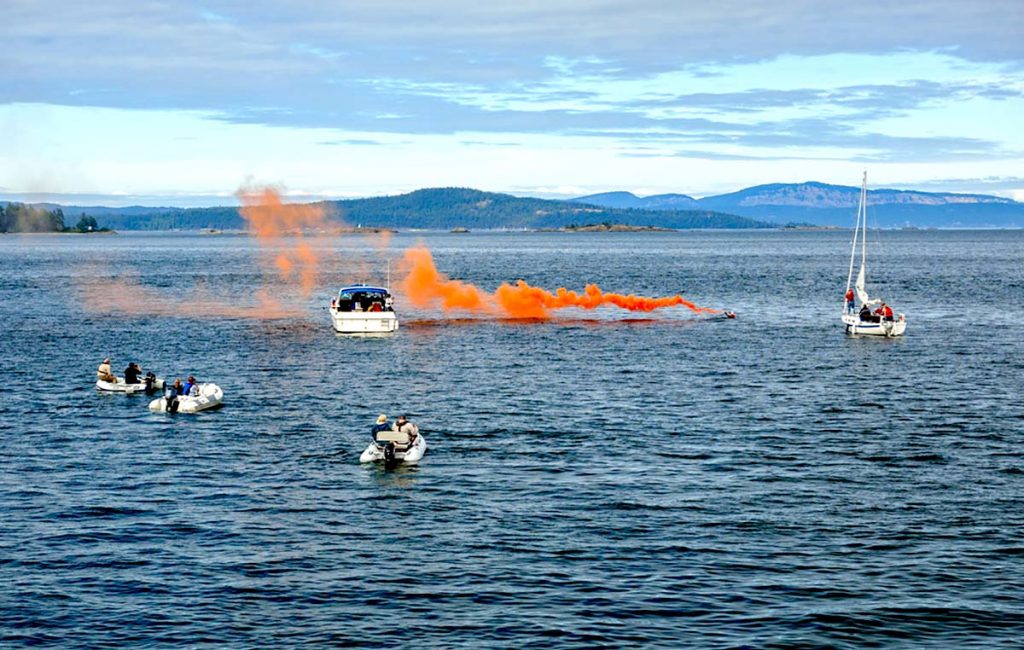
Understanding when and how to assist injured individuals during a boating accident is critical to ensure the safety of all parties involved. Boat operators must be prepared to take reasonable and specific actions as quickly as possible in the aftermath of an accident. By adhering to legal requirements and safety measures, operators can minimize the potential for further harm and legal consequences that may ensue.
Key Takeaways
- Boat operators must render assistance in accidents when safe and without jeopardizing their vessel or passengers.
- Adherence to legal requirements and safety measures helps minimize harm and legal consequences.
- Prompt action and reporting of the incident are essential for the safety and well-being of all involved parties.

The Legal Duty of Boat Operators
Boat operators have a legal duty to assist anyone injured in an accident under certain circumstances. This duty, often referred to as the duty of care, derives from the principles of maritime law and is upheld by authorities such as the U.S. Coast Guard.
Maritime law imposes a general obligation on boat operators to render assistance to those involved in a boating accident when it is safe to do so, and when providing aid would not jeopardize the vessel or its passengers source. This responsibility applies not only to passengers aboard the operator's own vessel but also to others involved in the accident, in the water or on other vessels.
U.S. Coast Guard regulations enforce this legal duty, emphasizing that boat operators must provide support in situations where personal injury is involved source. It's crucial to understand that the obligation to help may vary depending on the jurisdiction; however, the primary focus is to ensure the safety and well-being of individuals involved in the accident.

Moreover, some states have specific statutes governing the responsibility of boat operators. For instance, Florida Statute 327.30 mandates that operators take immediate and reasonable action to assist passengers or others injured in a boating accident source.
While fulfilling their legal duty, boat operators must also follow the proper procedures as outlined by the Coast Guard or state authorities. This may include reporting the incident, cooperating with investigations, and providing necessary information to authorities.
In summary, boat operators have a legal duty to assist those injured in an accident while adhering to maritime law, U.S. Coast Guard regulations, and state statutes. Operators must prioritize safety, provide support when possible, and comply with all relevant procedures and regulations.
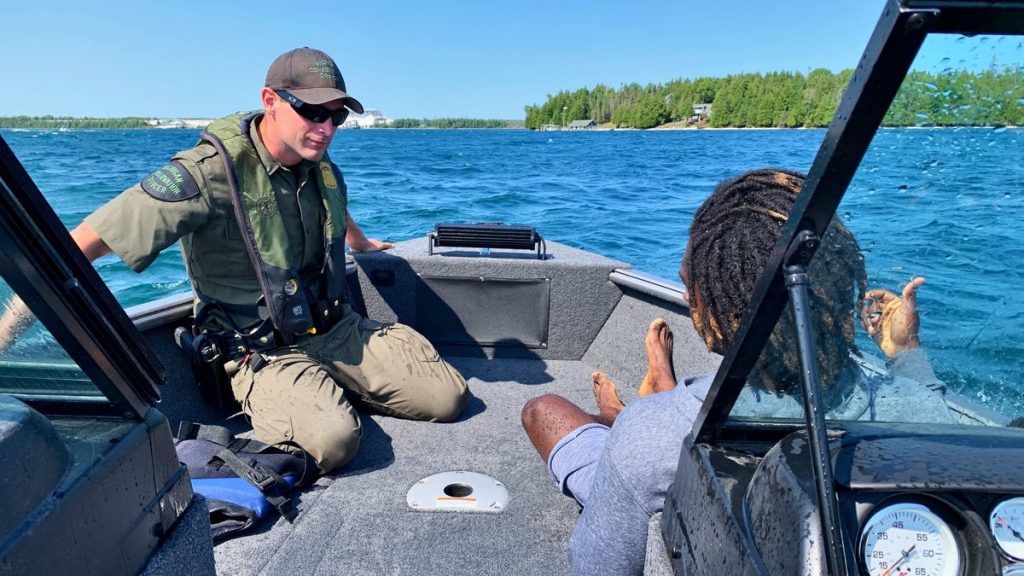
When is Assistance Required
In the event of a boating accident, boat operators are generally required to provide assistance to injured persons and those in danger. An operator involved in such an accident must stop their vessel immediately at the scene and attend to those in need of help 1.
It is crucial for the boat operator to assist anyone injured or in danger from the accident, as long as doing so would not seriously endanger their own vessel or passengers 2. Under maritime law and the principles of maritime common law, providing aid is obligatory when it is safe to do so and when it would not jeopardize the vessel or passengers 3.
In addition to attending to the injured persons, the boat operator must also give their name, address, and vessel identification to anyone injured and the owner of any property damaged by the accident 1. This responsibility extends to accidents where there are injuries beyond the assistance of first aid, deaths, or disappearances of boaters, and damage sustained or caused by the vessel 4.

Some jurisdictions, like Florida, also have specific laws stating that boat operators must provide "such assistance as is practicable and necessary in order to save them from or minimize any danger" 5. This includes assisting passengers and others affected by a boating accident. The focus is on minimizing danger and prioritizing the safety and well-being of those involved.
Ultimately, the responsibility of a boat operator to assist anyone injured in an accident depends on the circumstances and the potential risks involved. The primary concern is providing aid in a safe manner without putting the vessel, passengers, or the operator in further danger.
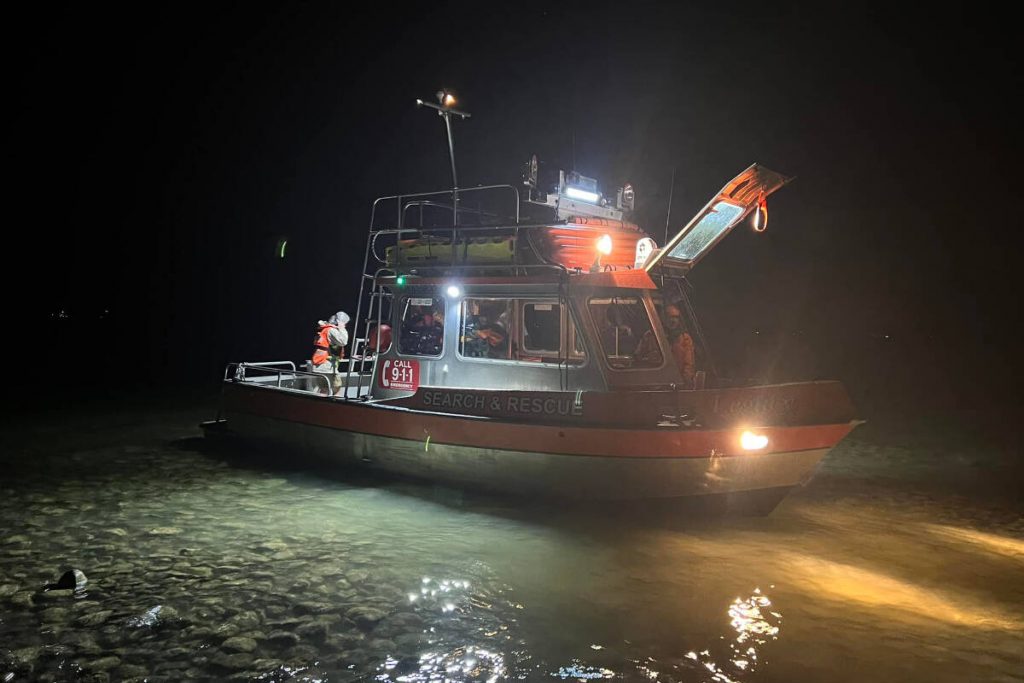
Safety Measures During an Accident
Accidents on the water can happen unexpectedly, and it is crucial that boat operators take the necessary steps to ensure the safety and well-being of everyone involved. One of the primary responsibilities of a boat operator during an accident is to provide assistance to the injured or those in danger as per the law. To maximize safety during such incidents, boat operators must be familiar with and follow these safety measures.
First and foremost, all passengers on the boat should be equipped with properly fitting life jackets, as these can save lives in emergency situations. Life jackets provide buoyancy and prevent drowning, which is especially important if someone is injured and struggling to stay afloat.
During an accident, fires can sometimes occur due to fuel spills or electrical issues. Therefore, every boat should be equipped with a functioning fire extinguisher that is easily accessible and up-to-date for this reason. Boat operators should also be familiar with the extinguisher's instructions and operations so they can act swiftly if a fire breaks out.

It is also essential to have emergency signaling equipment onboard, such as flares or a waterproof flashlight. These devices are invaluable in attracting the attention of nearby boats or rescue teams if the vessel is in distress or needs assistance.
Moreover, boat operators should carry additional safety equipment, such as a first aid kit, on board to address minor injuries and prevent them from becoming more severe. Items like waterproof bandages, antiseptic wipes, and adhesive tape can make a significant difference when responding to injuries during an accident.
In conclusion, adhering to these safety measures and ensuring that all necessary safety equipment is onboard can greatly minimize the risk of severe injuries and loss of life during a boating accident. Boat operators must prioritize safety and be prepared to assist those in need in the event of an incident on the water.

How to Assist Injured Individuals
In the event of a boating accident, a boat operator is obligated to assist injured individuals and ensure their safety and well-being. The operator must prioritize the injured person's needs and take immediate action to provide necessary help.
First and foremost, a boat operator should assess the situation and ensure that it is safe for them to approach and assist the injured person. This might involve steering the boat clear of any hazards, securing any damaged pieces of equipment, or shutting off the engine to prevent further damage or injury.
Once the scene is secure, the operator can attend to the injured individual. In cases where the person has sustained minor injuries, basic first aid can be administered. This might include cleaning and dressing wounds, applying ice packs to reduce swelling, or immobilizing an injured limb to prevent further damage. Boat operators should have a well-stocked first aid kit on board to treat minor injuries efficiently.
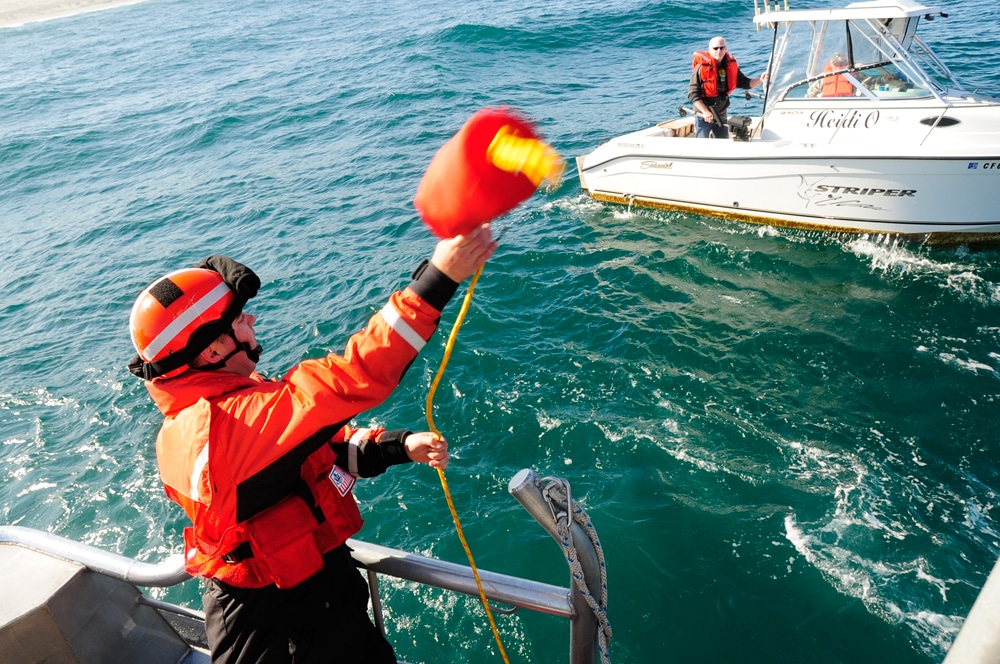
If an injured person requires more advanced medical attention, the boat operator may need to call for emergency medical aid or transport the individual to the nearest medical facility. In some cases, it might be vital to perform CPR (Cardiopulmonary Resuscitation) if the injured person is unconscious or not breathing. It is essential for boat operators to be familiar with CPR and first-aid procedures to provide assistance in such situations.
While providing assistance, the boat operator should also take measures to protect the injured individual from further harm. This might include moving them to a stable and comfortable position, placing them out of direct sunlight, or administering medication to mitigate pain.
Additionally, the operator should collect information about the accident for future reference. This might involve documenting the details of the event, including the time, location, visibility, and weather conditions, as well as the names and contact information of any witnesses or other individuals involved.
It is a boat operator's responsibility to render assistance to injured individuals while keeping their own safety in mind. Acting swiftly and confidently in these situations can make a significant difference in the injured person's chances of recovery.

Reporting the Incident
When a boat operator is involved in an accident, it is crucial to take the appropriate steps to ensure the safety of everyone involved and to comply with the law. One of the primary responsibilities of a boat operator is to report the accident accurately.
At the scene of the accident, the boat operator must stop their vessel immediately. They should then assess the situation and provide assistance to anyone injured or in danger, as long as doing so does not endanger their vessel or passengers. It is essential to remain calm and focused during this critical time to minimize potential hazards.
The process of reporting the incident plays a vital role in initiating a timely response from the relevant authorities. Boat operators are required to provide their name, address, vessel identification, and registration number to everyone involved in the accident and the owner of any property damaged by the accident. This information exchange helps ensure the proper handling of the situation and assists in any subsequent legal procedures.

Filing accident reports is also a vital aspect of reporting an incident. Boat operators should collect all pertinent information at the scene, such as the date, time, conditions, location, and details of the accident. This comprehensive and accurate account of the incident assists local authorities in assessing the situation and implementing appropriate safety measures.
In general, boat operators should maintain a confident, knowledgeable, and neutral demeanor when reporting an incident. It is essential to provide clear and accurate information to ensure proper handling of the accident and to avoid any miscommunication or legal ramifications. By following these guidelines and being proactive in providing accurate documentation, boat operators can contribute to a safer boating environment for all.

Legal Consequences and Liability
When a boat operator is involved in an accident, they have a responsibility to assist anyone injured, as long as it is safe to do so. Failure to fulfill this responsibility can result in legal consequences and liability. Boat operators must stop immediately at the scene of the accident and provide assistance to injured parties, as well as sharing their name, address, and vessel identification with those affected (Boat Ed).
In cases of negligence or fault, the boat operator may face legal action. Negligence in boating accidents often involves failing to follow appropriate safety procedures, inadequate maintenance, or operating the boat under the influence of alcohol or drugs. If the boat operator is found to be at fault, they may be held liable for any injuries, property damage, and other losses sustained by the accident victims.
Boat accident lawsuits may result in compensation for medical expenses, lost wages, pain and suffering, and other damages suffered by the injured parties. Compensation amounts vary case-by-case and depend on the severity of the injuries and the extent of the damage. If the operator is found to be at fault, they could face financial consequences in the form of compensatory and, in some cases, punitive damages.

Boat operators must also comply with reporting requirements following an accident. Failure to report the accident to appropriate authorities, such as the nearest Coast Guard station, can lead to additional legal consequences (Rivkind Law). Reporting is crucial for initiating rescue efforts and ensuring accurate documentation of the events surrounding the accident.
In summary, boat operators have a legal responsibility to assist those injured in an accident, and any act of negligence or fault on their part can result in significant legal consequences and financial liability. Proper adherence to safety procedures and reporting requirements can help minimize the risk of legal action and protect the well-being of all parties involved in boating accidents.
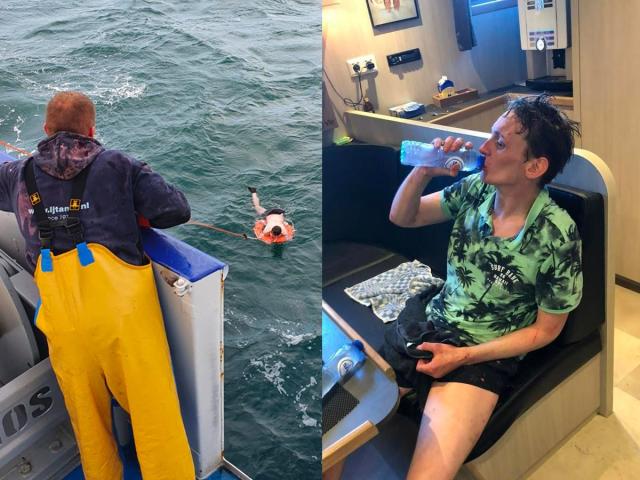
Role of Coast Guard and Legal Rights
The Coast Guard plays a crucial role in enforcing laws and regulations to ensure marine safety, security, and environmental protection. Their authority extends to any vessel under the jurisdiction of the United States. In the event of a boating accident, the Coast Guard may be involved in providing assistance or conducting investigations.
Under maritime law and maritime common law principles, boat operators are generally obligated to render assistance to anyone involved in a boating accident, provided it is safe to do so and does not jeopardize their vessel or passengers. Failure to comply with these requirements can lead to legal consequences.
Boating accident attorneys specialize in representing individuals who have been injured in boating accidents or families who have lost a loved one due to a boating accident. They are knowledgeable in maritime law, personal injury law, and the legal rights of individuals involved in boating accidents. In some cases, a boating accident attorney may assist in determining whether a boat operator fulfilled their duty to render assistance.
Regarding the legal rights of individuals involved in boating accidents, boat operators have a responsibility to:
- Stop their vessel immediately at the scene of the accident
- Assist anyone injured or in danger, unless doing so would seriously endanger their vessel or passengers
- Call for help, if necessary or available
- Report the accident to the appropriate authorities, if required
In conclusion, the Coast Guard plays an integral role in enforcing maritime laws, promoting safety, and assisting in rescue efforts. Boat operators must understand their legal obligations and responsibilities when accidents occur, and individuals involved in boating accidents should be aware of their legal rights. A boating accident attorney can provide valuable counsel and representation to protect the rights of accident victims.
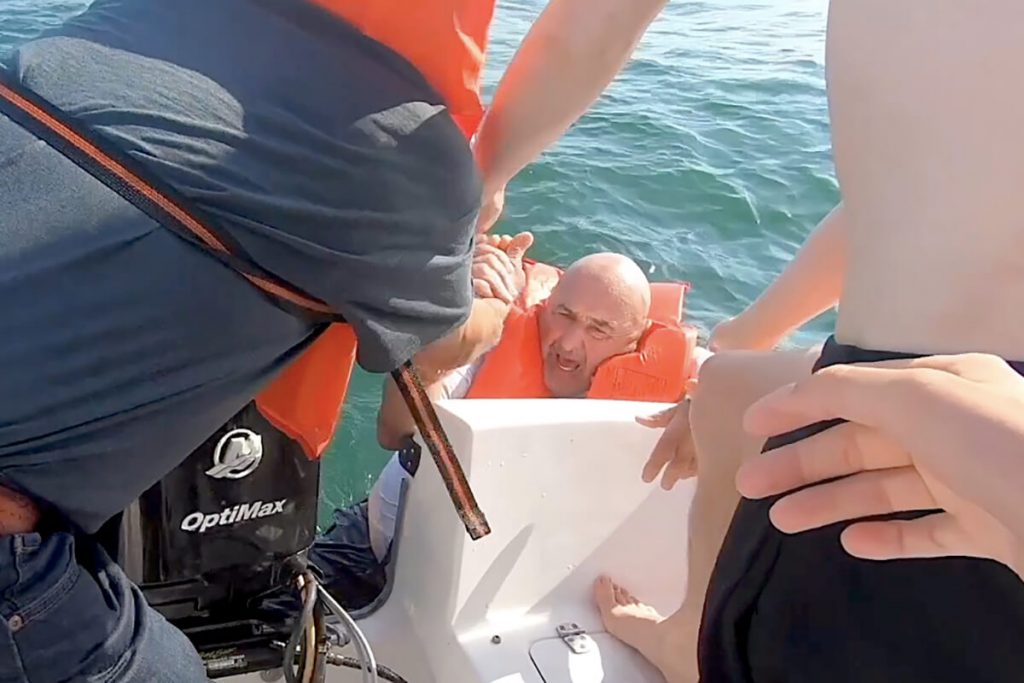
Addressing Property Damage
In the event of a boating accident, it is the responsibility of the boat operator to assess the situation and handle any property damage that occurred due to the incident. When accidents involve property damage, the boat operator must stop immediately and provide assistance to those affected.
As a boat owner, it is essential to be aware of the responsibilities involved in addressing any damages caused to other parties. This may include assessing the extent of the damage, evaluating the degree of damage to the boat, and cooperating with other boat owners who may have been involved or affected by the accident.
One of the primary responsibilities of a boat operator is to provide assistance to anyone injured in the accident. However, it is equally important to address property damage and ensure that appropriate actions are taken to resolve such situations. The boat operator must give their name, address, and vessel identification to the owner of any property damaged by the accident.
It is crucial for boat operators to be knowledgeable about the regulations governing property damage in boating accidents. Familiarizing oneself with these regulations will help ensure that the boat operator takes proper action for addressing property damage issues and complies with legal requirements. Some scenarios where property damage needs to be addressed may include accidents that result in damage to other boats, docks, marinas, or other structures related to water-based activities.
In summary, addressing property damage is a crucial aspect of a boat operator's responsibilities in the aftermath of an accident. Boat owners need to be aware of the legal requirements and obligations that come with such situations. By acting responsibly and in line with the regulations, boat operators can help resolve the situation promptly and maintain a safe and enjoyable environment for everyone on the water.

Specific Requirements for Different Watercrafts
When it comes to watercraft accidents, various types of vessels have specific requirements when it comes to assisting injured individuals. It is essential for boat operators, whether they are handling a motorboat, a jet ski, or a paddleboard, to be familiar with these requirements and to be prepared to act accordingly.
For motorboats, operators must stop their vessel immediately at the scene of the accident and assist anyone injured or in danger from the accident, unless doing so would seriously endanger their own vessel or passengers. In addition, they should provide their name, address, and vessel identification to anyone injured and to the owner of any property damaged by the accident. This applies to both privately owned boats and commercial vessels.
In the case of jet skis, operators are also expected to follow similar protocols. They must stop immediately, render assistance to the injured parties, and exchange information when it is safe to do so and without jeopardizing the safety of their own passengers. Keep in mind that jet ski accidents can be particularly hazardous due to the high-speed nature of these watercraft, which means that ensuring safety while providing assistance is crucial.
Paddleboard operators must adhere to similar guidelines when involved in an accident. They are required to stop immediately and help injured persons if it is safe to do so. They also need to give their name, address, and identification to anyone injured and the owner of any property damaged.
Regardless of the type of watercraft involved, all operators should prioritize the safety of themselves and their passengers while providing assistance. It is essential to approach the scene of the accident carefully, keeping an eye out for potential hazards or further incidents that could occur. Communication with other vessels in the area can also be beneficial in alerting them to the situation and coordinating rescue efforts if necessary.
In summary, specific requirements for different watercrafts focus on stopping at the scene of the accident, providing assistance to injured individuals, and exchanging information with all parties involved. Boat operators should prioritize safety and communication while adhering to these requirements.
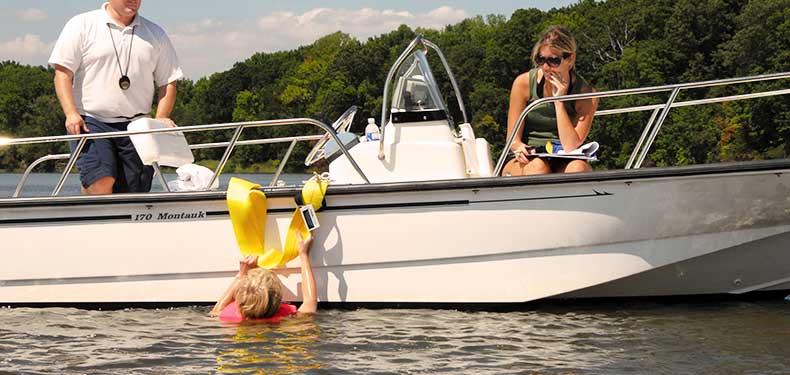
Conclusion
Boat operators hold a significant responsibility when it comes to ensuring the safety of all individuals onboard and nearby. In the event of an accident, a boat operator is required to adhere to specific legal obligations and provide assistance to injured persons, as well as share their contact information with the victim and the owner of any damaged property 1.
Additionally, it is crucial for operators to stop their vessels immediately at the scene of the accident and offer help to anyone injured, unless doing so would endanger their own vessel or passengers 4. Remaining at the scene until authorized personnel arrives is also essential 3.
Properly understanding these legal requirements can help boat operators maintain a safe and responsible environment on the water. By complying with the law and taking appropriate actions when necessary, operators can not only prevent further harm to the injured but also reduce their risks of facing legal ramifications.
Frequently Asked Questions
What are the responsibilities of a boat operator when an accident occurs?
A boat operator involved in an accident has several responsibilities, including stopping their vessel immediately at the scene, assisting any injured individuals or those in danger, and providing their name, address, and vessel information to injured parties and property owners whose property was damaged in the accident 1.
What is the first step a boat operator should take after witnessing an accident?
The first step a boat operator should take after witnessing an accident is to stop their vessel immediately and assess the situation. If necessary, they should move their vessel out of the way of other watercraft in the area and provide assistance to any injured individuals or those in danger, as long as it does not endanger their vessel or passengers 4.
Under what circumstances must a boat operator report an accident?
A boat operator must report an accident under various circumstances, including when there are injuries or fatalities, when property damage exceeds a certain threshold, and when a vessel is damaged severely or becomes a constructive total loss. It is essential to report the accident promptly and accurately to the nearest Coast Guard station or appropriate authorities 3.
How can a boat operator assist injured individuals in an accident?
A boat operator can assist injured individuals in an accident by providing "such assistance as is practicable and necessary in order to save them from or minimize any danger" 2. This may include helping individuals out of the water, providing first aid, and transporting injured parties to a safe location or medical facility if necessary.
What are the legal requirements for boat operators in case of accidents?
Legal requirements for boat operators in case of accidents vary based on jurisdiction. Generally, these requirements include stopping at the scene, providing assistance when it's safe and necessary, exchanging information with other parties involved, and reporting the accident to the proper authorities 5.
What are the consequences of not assisting injured parties in a boating accident?
Failure to assist injured parties in a boating accident can result in legal consequences, such as fines, penalties, and even criminal charges, depending on the jurisdiction and the specifics of the situation. It is crucial for boat operators to follow the appropriate laws and regulations to avoid such consequences 6.
Footnotes
- What You Must Do If Involved in an Accident - Boat Ed ↩ ↩2 ↩3 ↩4
- What You Must Do if Involved in an Accident - Boat Ed ↩ ↩2
- When is a Boat Operator Required to Assist Anyone in an Accident? ↩ ↩2 ↩3
- Illinois Boat Accident FAQ | 22 Boating Injury Questions ↩ ↩2 ↩3
- When Is a Boat Operator Required To Assist in an Accident? ↩ ↩2
- https://www.rivkindlaw.com/when-is-a-boat-operator-required-to-assist-anyone-in-an-accident/ ↩
Charlie is Editor-in-Chief of Sea Magazine